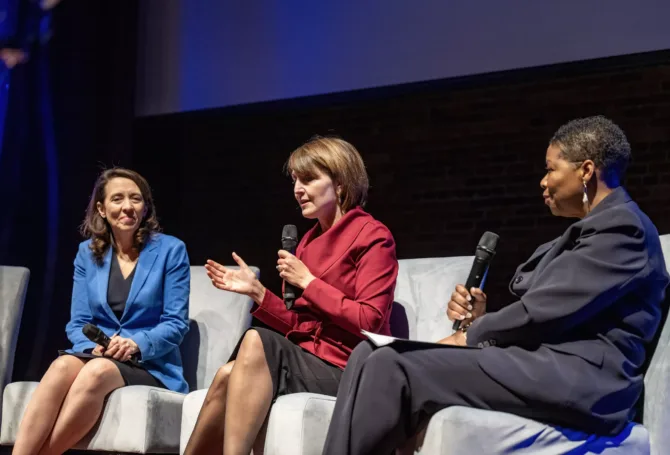
Congressional Democrats face major policy decisions this week that could affect the legacies of President Biden and House Speaker Nancy Pelosi, as well as influence the 2022 midterm elections and the lives of millions of Americans.
Last week, the $1.2 trillion bipartisan physical infrastructure bill and the $3.5 trillion reconciliation package appeared in jeopardy of imploding because of sharp disagreements between Democratic moderates and progressives on spending levels and timing of key votes.
After scheduling a House floor vote on the physical infrastructure bill, Pelosi pulled it because progressives threatened to vote against it, ensuring defeat. Instead, Pelosi asked Biden to come to Capitol Hill Friday night to pitch the importance and political significance of both measures, however long it takes to work out a compromise so both pass.
West Virginia Senator Joe Manchin, who represents the critical 50th Democratic Senate vote, wants the reconciliation package price tag shrunk to $1.5 trillion, less than half what Biden requested. The challenge centers on how to scale back the reconciliation package, which contains most of Biden’s Build Back Better initiative, including provisions to boost childcare, expand Medicare and make Pre-K and community college free.
One option being advanced is to limit the reconciliation package to as few as five major programs. Advocates of this option say fully funding a few programs is the best way to ensure they survive future GOP attacks and make an indelible impression on voters.
The other option under consideration is to retain most of the programs in the reconciliation package but reduce spending levels or sunset them to cut their cost. Advocates of this option argue it maintains an aura of the New Deal, benefits the most Americans, starts many new programs and promises to the House Democratic caucus.
Advocates of both options cite historical precedents to support their views. Those favoring a limited number of programs point to the durability of social programs such as Social Security, Medicare and the Affordable Care Act that have withstood partisan and ideological attacks. Those urging a slimmed-down version of the entire panoply of programs say planting many seeds is the way to benefit the most Americans.
For Biden and Pelosi, the ultimate choice of what’s included is very personal. What passes will likely define Biden’s presidency and either enhance or detract from Pelosi’s legacy as Speaker. For both, the choice is excruciating.
One hypothetical approach would be to focus on three priorities such as climate change initiatives, national paid family leave and extension of the tax benefit for children, which combined account for $1.5 billion in the reconciliation package. That would leave out universal Pre-K, free childcare, affordable housing and health care expansion. The health care provisions alone total $750 billion over the next decade.
Another hypothetical approach is to keep the entire array of reconciliation provisions, but only provide temporary funding that totals $1.5 trillion. This approach, advocates say, keeps faith with Democratic campaign pledges in 2018 and 2020 and would offer a clear choice for voters in the 2022 midterm elections.
The success of modern American presidencies rests largely on what they can accomplish in their first two years, when they typically have a Congress controlled by their same party. If Republicans regain control of the House, Senate or both in the 2022 elections, Biden won’t be able to push through any major Democratic legislative initiatives.
Pelosi is nearing the end of her 19-year reign as Speaker and Democratic House leader. She has referred to the physical and human infrastructure measures as the “culmination of my service in Congress”. Pushing through both measures will cement her legacy as one of the most powerful Speakers in congressional history. Should either or both measures fail to pass, Pelosi’s political career will end on a bitter note.
The 81-year-old Speaker demonstrated her legislative acumen by tying the physical and human infrastructure measures together politically. Biden’s Capitol Hill visit seems engineered to reinforce that political linkage, a key to a unified Democratic position. With a 50-50 tie in the Senate and a very thin Democratic margin in the House, every Democratic vote will be needed.
Either option could benefit if Manchin agrees to raise the reconciliation package to $2 trillion over 10 years. Biden has tried and so far failed to persuade Manchin. It now may be Pelosi’s turn.
The 81-year-old Speaker demonstrated her legislative acumen by tying the physical and human infrastructure measures together politically.
The Washington Post pointed out a little noticed connection between Pelosi and Manchin. In addition to both being Italian Catholics, Pelosi and Manchin collaborated to preserve pensions for coal miners. During their work together, Manchin noticed a statue of a coal miner in Pelosi’s office. It was a gift from a future West Virginia senator to her father, the future mayor of Baltimore. Earlier this year, Manchin gave Pelosi her own coal miner statue with the inscription, “Thank you for keeping the promise to the coal miners who helped build this country.”
Pelosi relishes high-tension negotiations on meaningful legislation, as she told reporters Friday night. “At the end, that’s when you really have to weigh in. You cannot tire. You cannot concede. This is the fun part.”




